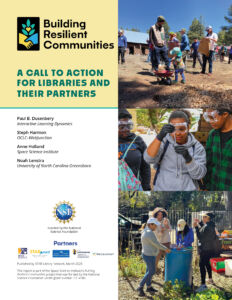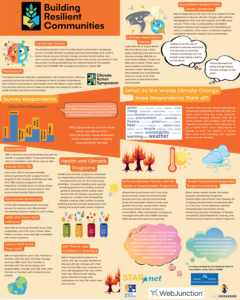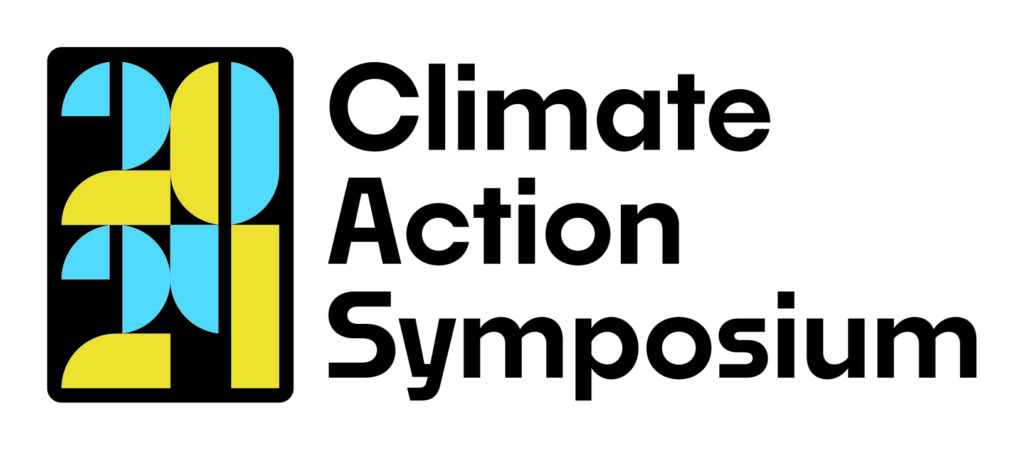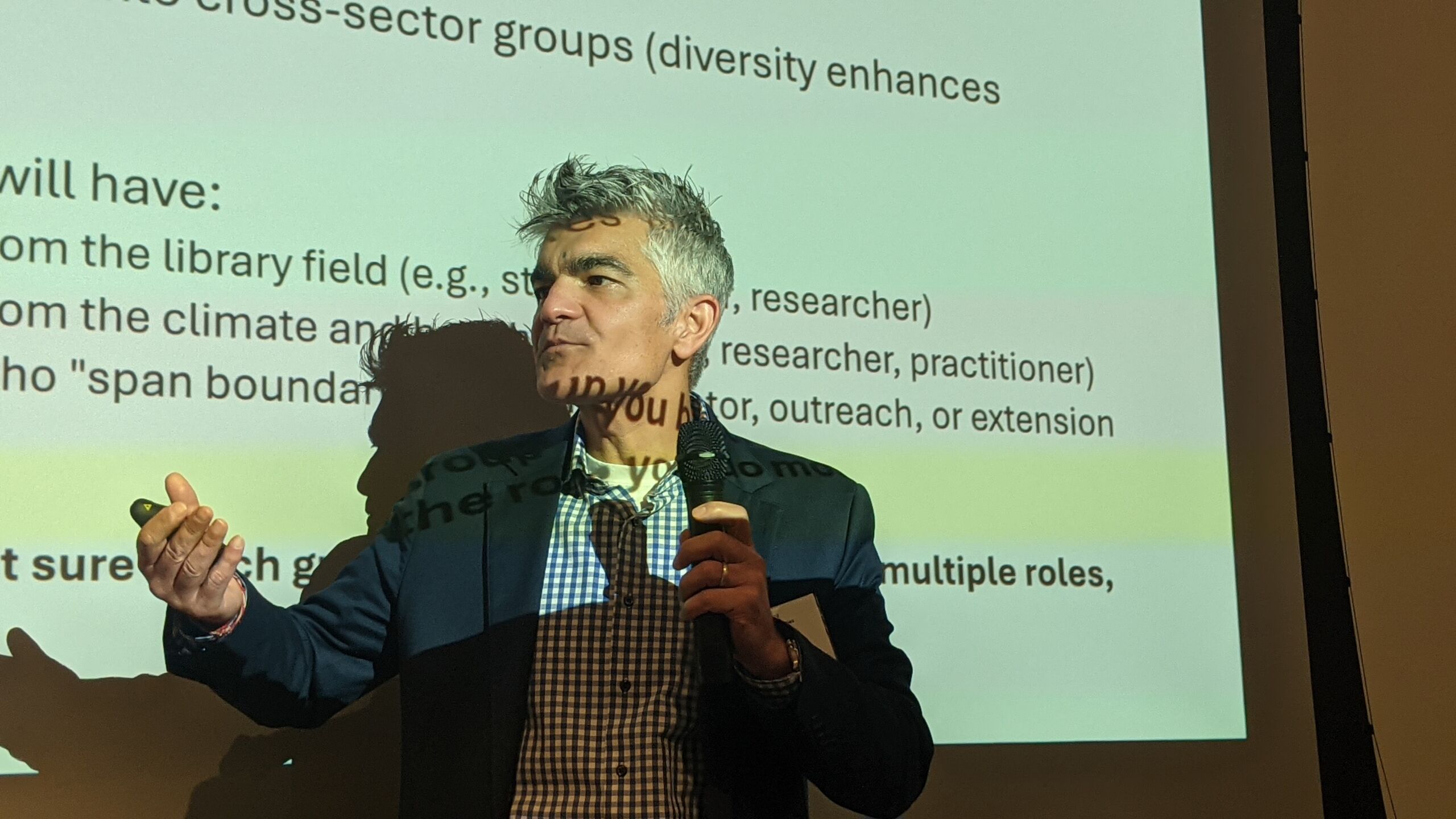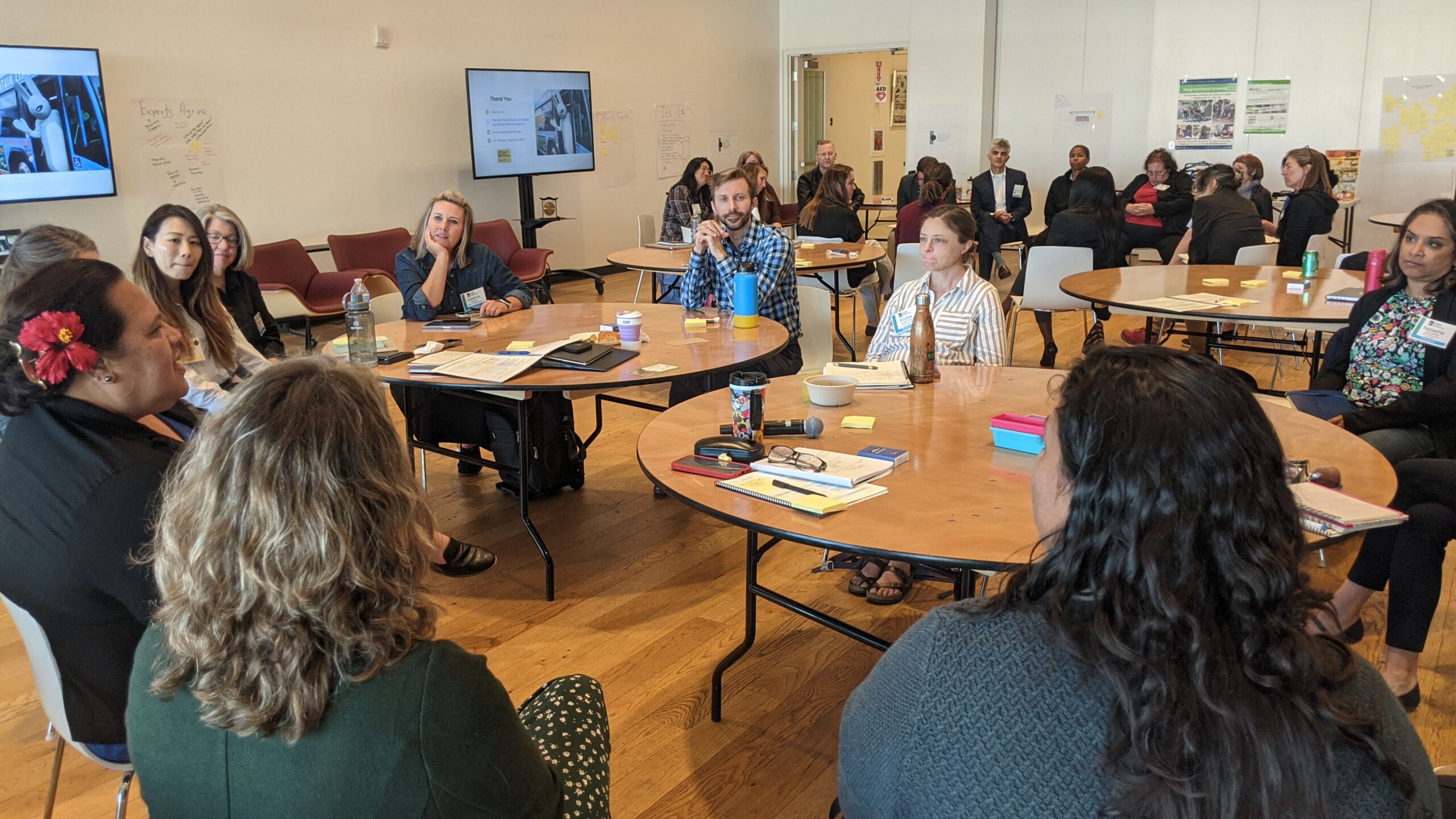
A Call to Action: Climate change and its related environmental health impacts pose serious threats for many, if not all, communities. By developing and strengthening strategic collaborations and partnerships, community leaders and organizations will be better equipped to meet the social and health challenges that accompany these threats and build climate resilient communities.
The Building Resilient Communities Project: A National Symposium that Explores the Role of Public Libraries and Community-Based Organizations in Addressing Local Climate Impacts was funded by the National Science Foundation (you can view award information on the informalscience.org site HERE). The lead organization was the Space Science Institute; partner organizations included OCLC WebJunction, University of North Carolina Greensboro, and Interactive Learning Dynamics. Building Resilient Communities is a project of the STAR Library Education Network (STAR Net).
The key component of the Building Resilient Communities Project was the 2024 Climate Action Symposium that brought together national, state, and local experts working to increase awareness and knowledge of how climate change impacts the environment, public health, and social equity. See information below.

Credit: NASA
Project Deliverables
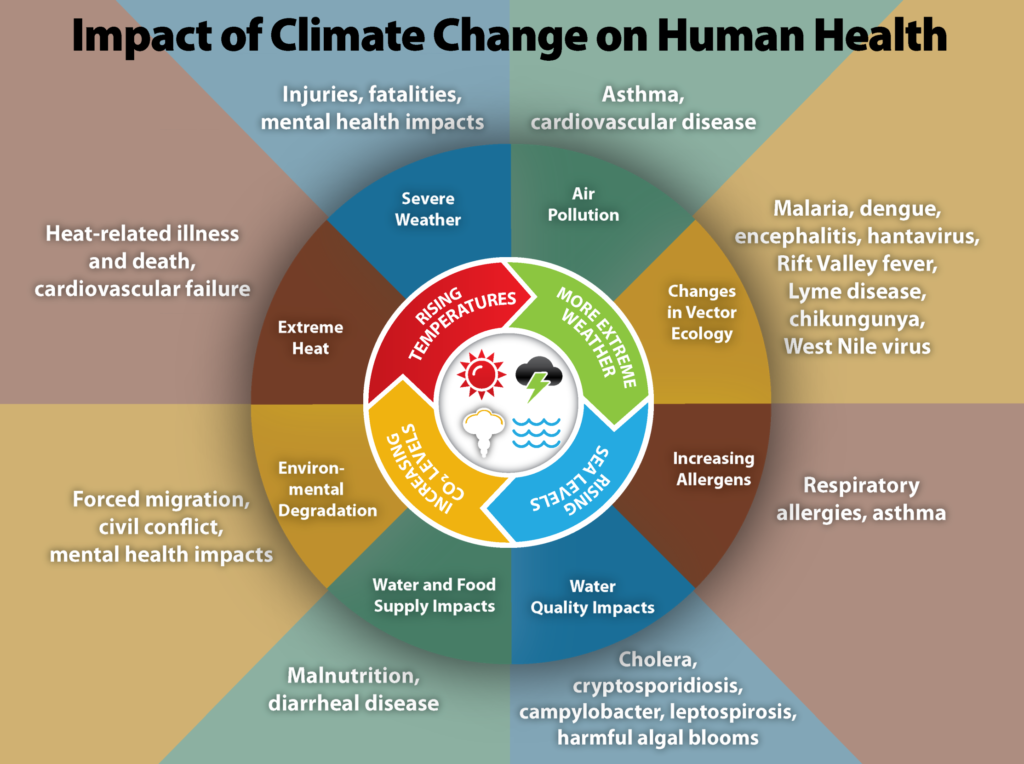
Climate change, along with other natural and human made health stressors, influences human health and disease in numerous ways. Credit: CDC
These project deliverables aim to 1) raise awareness of and increase knowledge about how climate change impacts the environment, public health and social equity, and 2) disseminate information so that public libraries and their community partners can develop and strengthen STEM learning ecosystems that create new, or bolster existing, strategic collaborations and partnerships to address local impacts of climate change.
Symposium Overview
The symposium was held September 9-10, 2024, in Washington, D.C. at the Martin Luther King Jr. Memorial Library. Thirty-nine thought leaders from a range of sectors, including public libraries, climate science communication, public health, STEM education, and informal learning were invited to the event.
The symposium goal was to catalyze action around the roles that libraries and community-based organizations can play in responding together to environmental and health-related concerns due to climate change. This collaborative event provided current examples of climate-related programming and resources in public libraries. Symposium topics highlighted how the concept of environmental health can inform action-oriented and equitable STEM learning experiences designed with (not just for) communities to increase resilience and the ability to address local climate impacts.
Project Team
Leadership
Anne Holland, Principal Investigator (Space Science Institute)
Paul Dusenbery, Co-principal Investigator (Interactive Learning Dynamics)
Steph Harmon, Co-principal Investigator (OCLC/WebJunction)
Noah Lenstra, Co-principal Investigator (University of North Carolina Greensboro)
Sky Reid-Mills, Project Coordinator (Space Science Institute)
Advisors
Matthew Bollerman (Hauppauge Public Library, NY)
Vivienne Byrd (Los Angeles Public Library)
Anne Gold (Cooperative Institute for Research in Environmental Sciences at the University of Colorado in Boulder)
Raj Pandya (Arizona State University)
Dennis Schatz (Institute for Learning Innovation)
April Wright (Network of the National Library of Medicine)
Webinar Series
WebJunction is hosting a webinar series to provide training for library staff, featuring library and community experts from diverse sectors. Ultimately, the project aims to inform a comprehensive research agenda that emphasizes the vital roles libraries and community organizations play in enhancing public health and fostering sustainable practices.
Glossary of Key Concepts
Weather is the state of the atmosphere, including temperature, atmospheric pressure, wind, humidity, precipitation, and cloud cover. Weather changes occur locally over short periods of time—from minutes to hours or days. Familiar examples include rain, snow, clouds, winds, thunderstorms, or hurricanes. Weather is influenced by latitude, altitude, and local and regional geography. It impacts the way people dress each day and the types of structures built.
Climate refers to the long-term (usually at least 30 years) regional or even global average of temperature, humidity, and rainfall patterns over seasons, years, or decades. The climate of a region depends on many factors including the amount of sunlight it receives, its height above sea level, geography, and how close it is to oceans. Since the equator receives more sunlight than the poles, climate varies depending on its distance from the equator. Earth’s climate has been warming, especially in recent decades due to human influences like the burning of fossil fuels.
Climate Action focuses on three areas: climate mitigation (reduction of greenhouse gas emissions); climate adaptation (helping people, institutions, and communities thrive in the face of climate change); and an overarching dedication to climate justice (increasing the empathy, respect, and understanding we have of all community members).

Image credit: Sustainable Libraries Initiative
Climate Effects on Health. Climate change, together with other natural and human-made health stressors, influences human health and disease in numerous ways. Some existing health threats will intensify, and new health threats will emerge. Not everyone is equally at risk. Important considerations include age, economic resources, and location. Public health can be affected by disruptions of physical, biological, and ecological systems, due to climate change disturbances originating locally and/or globally. The health effects of these disruptions include increased respiratory and cardiovascular disease, injuries and premature deaths related to extreme weather events, changes in the prevalence and geographical distribution of food- and water-borne illnesses and other infectious diseases, and threats to mental health.
Climate Resilient Communities. RESILIENCE is the ability of people and their communities to anticipate, accommodate and positively adapt to or thrive amidst changing climate conditions and extreme weather events. They have agency and power to make positive changes and the opportunity to participate in larger-scale decision-making. Resilient communities enjoy a high quality of life, reliable systems, and economic vitality, and they conserve resources for present and future generations.
Environmental Justice means ensuring that everyone has equal access to safe, healthy environments, regardless of income, race, Tribal affiliation, national origin or disability. Environmental Justice seeks to achieve equitable, inclusive decision-making processes and fair outcomes that protect all people from environmental and health hazards.
Public Health promotes and protects the health of all people and their communities. It does not focus on individual health outcomes but does look at population level ones. This population-based approach strives to give everyone a safe place to live, learn, work and play. Public health activities include 1) Tracking disease outbreaks and vaccinating communities to avoid the spread of disease, 2) Setting safety standards to protect workers, 3) Working to prevent gun violence, and 4) Addressing the impact of climate change on our health.
Social Determinants of Health. The social circumstances in which people are born, grow, live, work, and play profoundly affect health and drive health disparities. These include healthcare access and quality, education access and quality, and environmental conditions (e.g., air and water quality).
A STEM Learning Ecosystem encompasses schools, community settings such as after-school and summer programs, public libraries, science centers and museums, and informal experiences at home. It harnesses the unique contributions of all these different settings in symbiosis to deliver STEM learning for all. Designed pathways enable learners to become engaged, knowledgeable, and skilled in the STEM disciplines as they progress through childhood into adolescence and adulthood. Like ecosystems in nature, robust learning ecosystems are characterized by diversity, redundancy, and local adaptation.
Links to Relevant Resources
Valuable Websites
STEM Activity Clearinghouse
STAR Net’s STEM Activity Clearinghouse includes active learning program activities across a broad range of STEM subjects (e.g., astronomy, earth science, technology, health, and engineering). The Clearinghouse is a “one-stop shop” for free STEM activities designed specifically for the library setting, based on librarian demand and feedback. There are currently over 500 STEM activities on the Clearinghouse!

This work is supported by the National Science Foundation under Grant Number 2314180 to the Space Science Institute. Any opinions, findings, and conclusions or recommendations expressed in this material are those of the author(s) and do not necessarily reflect the views of the National Science Foundation.

